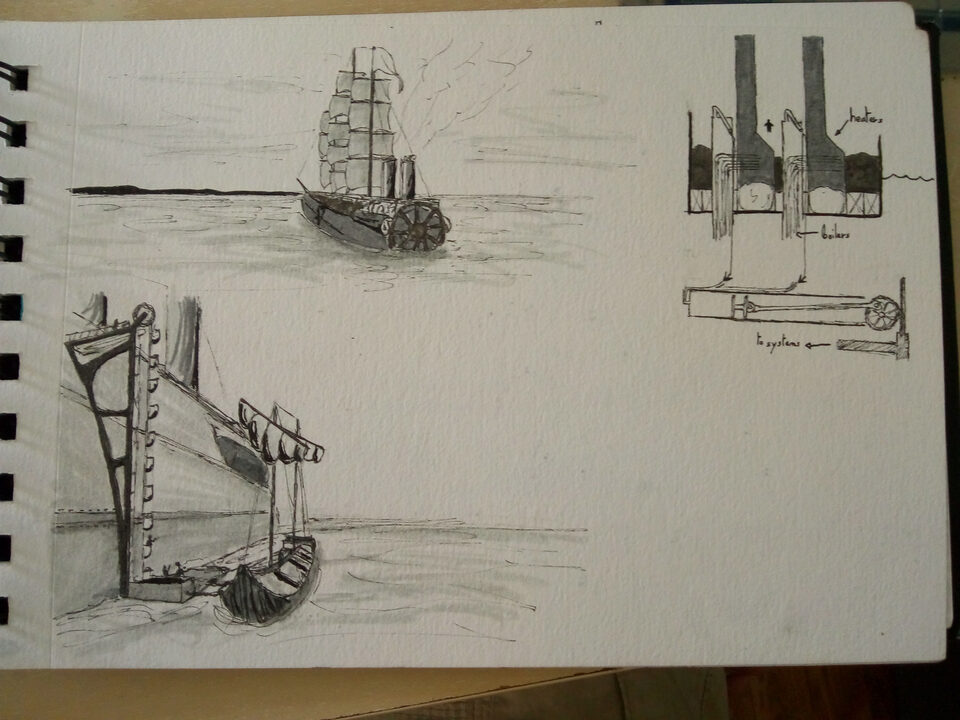Monos class vessel
The revolutionary hybrid sail-coal ships
"Monos class vessel" on https://aligot-death.space, available at https://aligot-death.space/projects/worldbuilding/3700/monos-vessels-en
The Monos Class Vessels were sailships used for less than a decade to transport fret and sometimes passengers across the xxx ocean. At the dawn of the second industrial revolution (note: the first being mecanical parts), the coal extracted from xxxx's mines was so poor that it could hardly be used for heavy-duty. before the development of better rafinery processes, coal was used as an auxilliary power to existing systems. Monos class vessels were sailships which were operated by a limited crew, as steam-power was used to activate the sails and other subsystems. "Monos class" was a lose marketing term which designated ships from various sizes: But as the steam-powered engines was barely viable enough even for this purpose, secondary ships were used to supply the biggest mastodons with fuel in the middle of their journey. The were also using the most of their enormous gear system to generate sufficient torque. This led to a short revivial of sea-crimes, where thieves would disguise their ships into refuelers to attack the cargos. In response, transport companies set a complex system of horns to allow medium-range (3 to 10 kilometers) communication and identification through chord-based codes. Musicians with perfect pitch were often hired to palliate to the cost and reliability of the rudimentary mechanical frequency-analysers. More than once actual refueling ships got sent to the bottom of the ocean by the cargos' cannons due to the approximate tuning of their organ.

Because they were often hiding in the coal wearing black clothes, and as most of their criminal empire revolved around the selling of coal in alternate markets, the "<coalers>" were humorously calling their business the "actual black-market". Monos Class ships quickly became obsolete, not only because of the improvement of coal-extraction, but also because of the terrible cost of their maintenance, especially the frequent replacement of the boilers that were diving in the sea, and which would accumulate salt on their tubes.